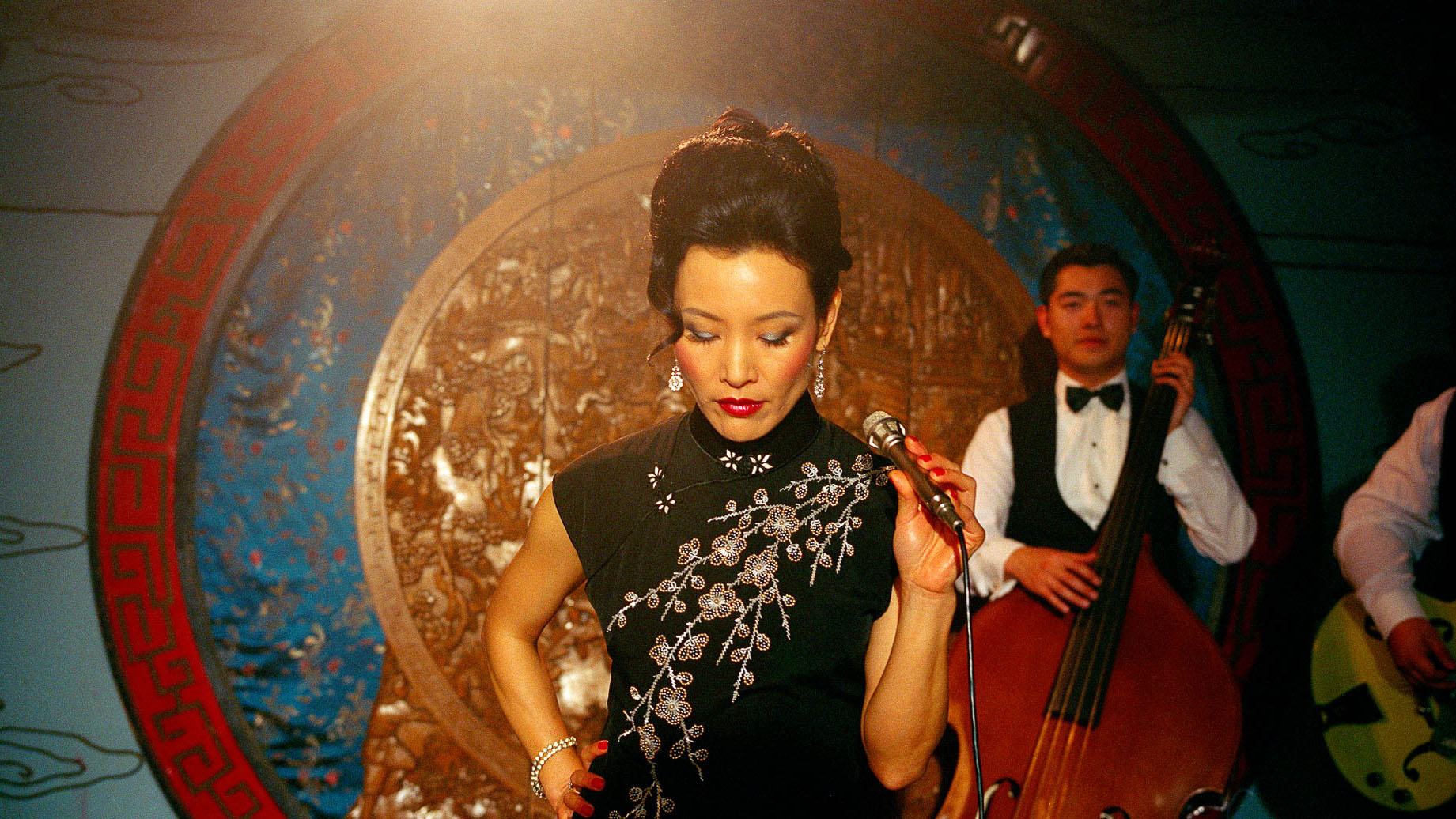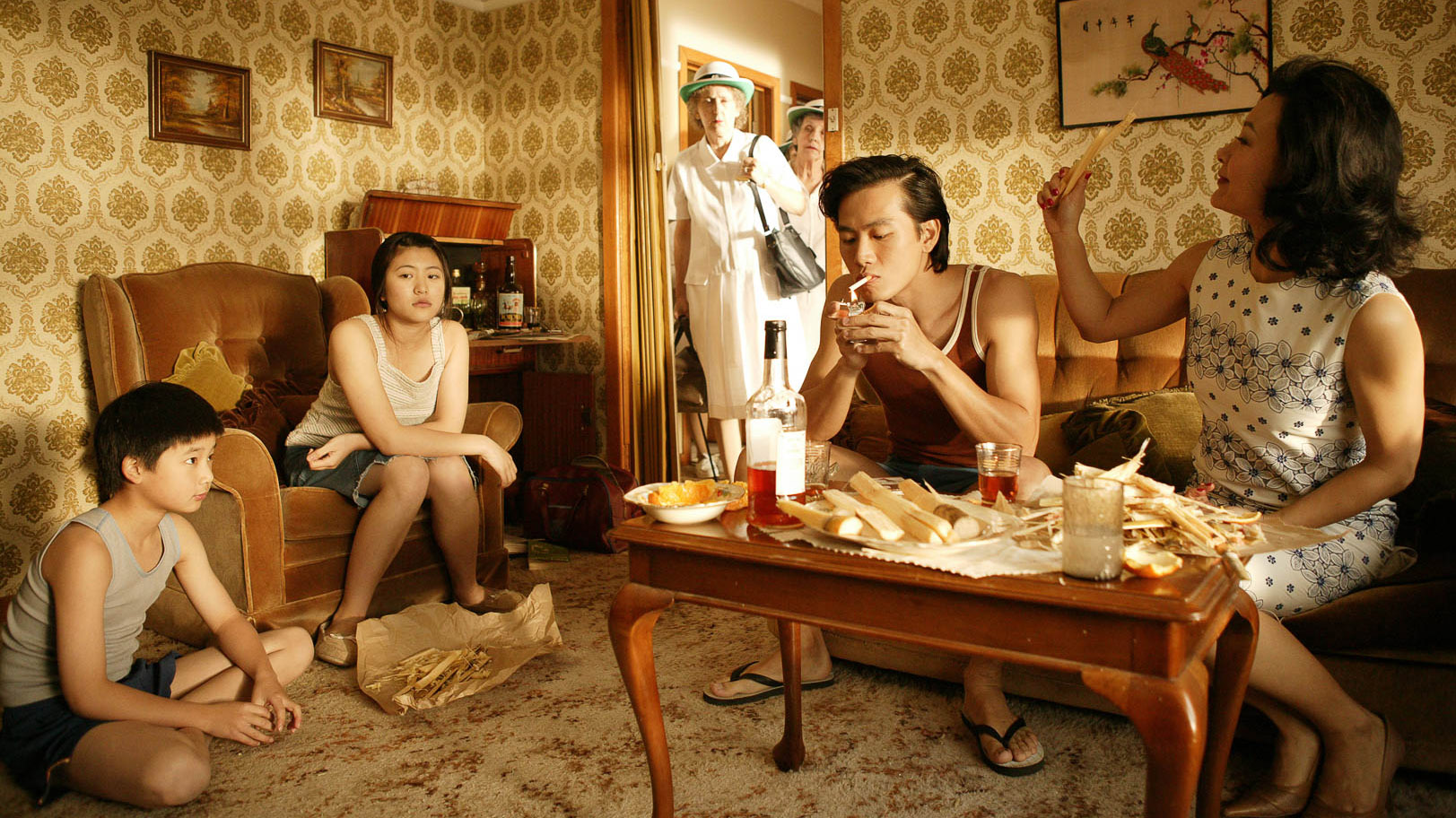The Act of Articulation: An Interview with Tony Ayres

Critics Campus 2022 participant James Walsh speaks to The Home Song Stories director Tony Ayres about exposing the personal, the power of storytelling and what’s next for the screen.
It can be easy to let the more turbulent moments of your past define your perception of it – a problem that writer, director and producer Tony Ayres has always managed to avoid. Ayres emerged from a tumultuous childhood as a first-generation Chinese-Australian immigrant to forge a decades-long career in the Australian film and television industries, making outstanding use of his preternatural gifts for personal and engaging storytelling.
One of the most luminous highlights of that career is The Home Song Stories (2007), which had a retrospective screening at MIFF 70. The film is a semi-autobiographical account of the relationship between the young Chinese-Australian boy Tom (Joel Lok) and his troubled mother Rose (Joan Chen). Ayres, who both lived that story and immortalised it on film, can summarise it better than anyone. “The story was about my mother, my sister and me,” he says. It was also about his mother’s mental-health issues, particularly those around “growing older as a Chinese woman in a world in which she was predominantly valued for her looks, and the crisis she had when she felt that power going,” he explains.
That brief retelling, as succinct and carefully crafted as a Ernest Hemingway short story, exposes the heart of what makes The Home Song Stories so powerful: Ayres’s ability to look at complex figures close to his heart with the utmost clarity and generosity.
The film won multiple AFI Awards and confirmed Ayres as one of the great talents of the Australian screen. However, having one of the most prolific bodies of work in the local film and television industries means that Ayres’s chances for reflection can’t be taken for granted. “It’s interesting,” he says. “I hadn’t really thought very closely about my childhood until the film came back up.”
“Having recently seen it, it did occur to me that a lot of my preoccupations today are still influenced by things that happened back then,” he continues. “Certainly, as you get older, you tend to look backwards more. I don’t think that those questions are necessarily resolved, or even resolvable … Ultimately, the kinds of concerns I had when I made that film are still concerns I have today.”

The Home Song Stories
Despite its awards buzz and positive audience reception, The Home Song Stories didn’t take off commercially, prompting a change in format for Ayres’s storytelling. “The Home Song Stories, weirdly, was the beginning of my pivot towards television,” he says. “I gave that film my all – it was so personal, I cared so much about it – but it didn’t really connect with audiences. I mean, the people who saw it generally had a positive response, but a lot of people didn’t see it. I sort of thought, ‘I just want more people to see my work,’ and that was when the idea of television became more significant to me, so I started moving in that direction.
That pivot kickstarted an incredibly fruitful run for Ayres, including showrunning the smash ABC TV show The Slap as well as producing other homegrown hits such as The Family Law, Stateless and Glitch. Ayres’s work as a producer requires his guiding hand to be gentle and firm all at once – a hand that can keep some of Australia’s most talented writers firmly focused on the heart of a story. “Something I’ve hit upon lately that probably articulates it best for me is: there is a difference between the story and the storyteller. The deeply personal, that is the story – the autobiographical, the lived experience,” he says. “But my job is to be the storyteller. We are not just a bundle of sensations and memories and experiences. We are the act of articulating those in some form. The act of articulation is the storyteller’s craft.”
The Home Song Stories’ retrospective screening was a space in which Ayres was able to reconnect with his past. Joel Lok, who played his stand-in figure Tom, attended the screening, as did other members of the cast and crew. It also allowed Ayres to reflect on the genesis of his artistic voice – and what might be next in store for him. “Part of me is very tempted to go back to the beginning and look at the things that inspired me when I started.”
Accompanying that is a renewed focus on class dynamics, which Ayres perceives as one of the more untapped areas of screen representation. “I feel like a lot of what we see on our TV screens and in feature films is a focus on people who are economically privileged. A lot of my emotional sympathies are for stories about people who are fighting for their survival in a day-to-day way. They’re the stories I think we aren’t seeing as much as I would like.”
It’s a sensitive topic, and a great Australian taboo. But, as The Home Song Stories proves, no-one is better equipped than Ayres to explore that sensitivity with craft and grace.